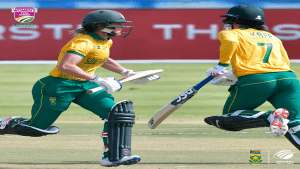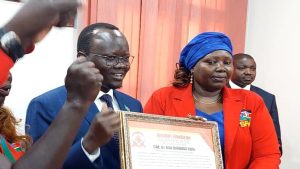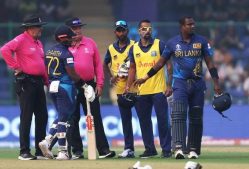Sri Lankan president, Gotabaya Rajapaksa, plans to step down from the presidency on 13 July, the Speaker of the country’s parliament said on Saturday.
This follows after thousands of protesters stormed the residence of the president in Colombo, the country’s capital, on Saturday demanding his resignation. Crowds of flag-waving demonstrators enraged by Rajapaksa’s handling of the worst economic crisis in that country has faced in decades, gathered in front of the official state residence of the president, and despite heavy security protestors stormed past the security forces and marched into the residence.
The president is said to have been taken to a safer location, with some reports saying that he is near the airport, but this cannot be confirmed.
Before breaking into the government buildings on Saturday, the protesters dismantled several police barricades in Colombo’s government district. A witness says police fired shots in the air but were unable to stop the crowd from surrounding the presidential residence.
Thousands of protesters have stormed President Gotabaya Rajapaksa’s residence in the capital of Sri Lanka over mismanagement of the country’s economic crisis.👇🤔 pic.twitter.com/o7QsSO5FsU
— Lucky Mbabazi (@LuckyMbabazi) July 9, 2022
Speaker of the Parliament of Sri Lanka, Mahinda Yapa Abeywardena, said in a video statement, that President Rajapaksa has informed him that he would step down from his post on Wednesday.
Abeywardena said, “The decision to step down on 13 July was taken to ensure a peaceful handover of power,” “I therefore request the public to respect the law and maintain peace,” he concluded.
Ranil Wickremesinghe, the Prime Minister of Sri Lanka, called for an emergency meeting of all political party leaders and cabinet to discuss the situation and find a way forward to dealing with the power vacuum that President Gotabaya’s resignation would leave.
Footage circulating across social media shows protesters lounging on a four poster bed and plunging into a swimming pool at the residence.
#July9th Protests in Colombo Sri Lanka.
📌President to step down July 13
📌PM to step down
📌Protesters storm Pres House & Office
📌Protesters set fire PM’s house
📌9 Journalists attacked by Police
📌Over 40 protestors injured#LKA #SriLanka #SriLankaCrisis #SriLankaProtests pic.twitter.com/ePd67m8av0— Sri Lanka Tweet 🇱🇰 💉 (@SriLankaTweet) July 9, 2022
Sri Lanka’s economic crisis
The economic crisis facing Sri Lanka developed after the COVID-19 pandemic hammered the tourism-reliant economy and slashed remittances from overseas workers.
It has been compounded by the build-up of hefty government debt, rising oil prices and a ban on the import of chemical fertilisers last year that devastated agriculture. The fertiliser ban was reversed in November.
Many blame the country’s decline on economic mismanagement by Rajapaksa and there have been months of largely peaceful protests demanding his resignation. Disgruntlement has increased in recent weeks as the cash-strapped country stopped receiving fuel shipments, forcing school closures and the rationing of petrol and diesel for essential services.
Political instability could undermine Sri Lanka’s talks with the International Monetary Fund as it seeks a $3 billion bailout, the restructuring of some foreign debt and fund-raising from multilateral and bilateral sources to ease the dollar drought.






